Dave and I loved primitive tent camping when we lived in Virginia, and tried to take at least two or three camping trips a year. But, for whatever reason, when we moved to Georgia, we didn’t camp once during our seven years there. Maybe it was the warmer temps, or perhaps our backyard firepit and pool was enough reason to stay home. When it was time for us to retire to Florida, we sold or gave away all of our camping gear due to lack of space and use.
Then the pandemic came and like everyone else, we were stuck at home and going stir crazy. We started to think about camping again, but lack of gear and our older age gave us a reason to look at RVs, and our love of RV camping was born.
Finding an RV
Thanks to the internet, it wasn’t too difficult to find an RV. The largest RV rental operation in N. America is Cruise America, which rents in the US and Canada, and they are one of the few companies that has one-way rentals. I recently learned about a company called Imoova that rents RVs to individuals who can relocate the vehicle one-way between cities.
There are smaller companies like Road Bear and El Monte (not to mention local operators), and lastly, RVShare and Outdoorsy, which connects private owners with renters, similar to Airbnb. Regardless of where you get your RV, be sure to find out about insurance, mileage allowance, and generator & LP usage fees. I would not rent privately unless you have, or are prepared to purchase separate insurance coverage that includes roadside assistance. Fortunately, we never needed RA but I wouldn’t want to be without it.
RV Types
With RVs, you are either towing a camper or driving it. This article is a great introduction to the different types of RVs available, so you can decide which is right for your trip and level of experience. Since we are newbies, all of our trips have been in Class B or C RVs. They are easy to drive and you don’t have to learn how to do the tow hitch. The biggest downside to a camper (vs. a trailer) is not having a separate vehicle; having to break down your camp every time you want to go somewhere can get tiresome.
Where to Camp
What kind of camping do you want to do? Do you want to be alone in the nature without another soul in sight, or around lots of neighbors, a pool, and amenities? Or, perhaps something in between? Do you want/need hook-ups (electric, water and sewer)? Where do you find these campsites?? Websites/apps like Campendium and The Dyrt have search features to help you find the perfect site, that you can filter by site type (RV Park, Public Park, or Parking), and hook-up type. If you desire a campsite with full or partial hook-ups, you will almost certainly need a reservation. Desirable areas like national parks and beach sites fill up fast, sometimes months in advance.
RV Parks: Many have lots of amenities, cement slabs for sites, and full hook ups. Likely to be less secluded. Great for people who like to socialize with their fellow campers. Expect $40-$60/night.
Public Parks: Usually State or National parks or Forests. Less populated and usually more scenic, often with shade and a body of water. Many have full or partial hook-ups. You will want to find out if they sell wood and ice (some don’t) and have bath/laundry facilities. Expect $11-$20/night.
Private Campgrounds: Similar to Public parks but usually more expensive. There might be a game room or restaurant on site. Expect $35-$45/night.
Boondocking or Dispersed Camping: Dry camping on private or public lands. Be sure that camping is permitted! No amenities or hook-ups.
Parking Lot: Not exactly “camping” but if you need a place to sleep for the night, there are parking lots that permit overnight RV parking.
We’ve now taken three trips since our first in 2020:

Trip 1 Itinerary:
Our first RV trip started and ended in Denver, CO. We flew in to the Denver airport and took an Uber to the RV rental pick up location, about 30 minutes from the airport. We camped two nights at each of our sites, with the exception of St. Vrain, which was selected due to its proximity to Road Bear so we could return our RV the next morning. We visited Mesa Verde National Park, went white water rafting, and had a great lunch in Telluride.
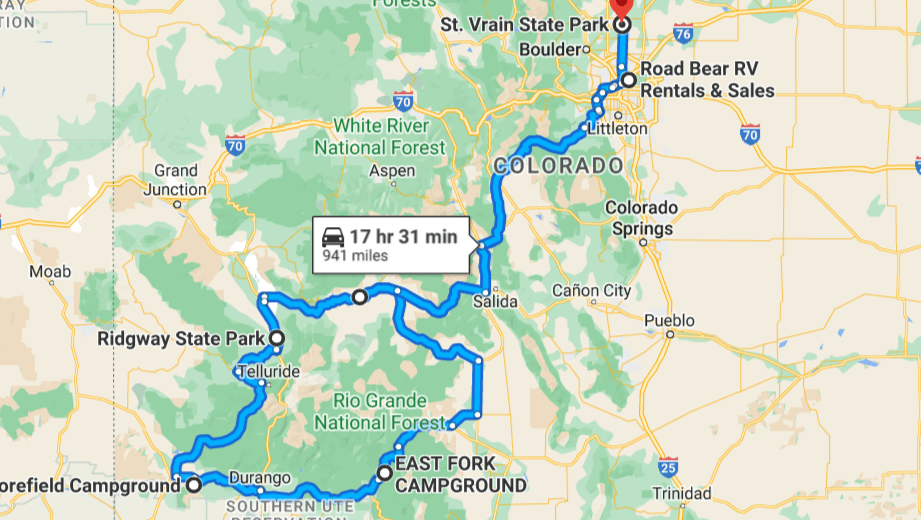
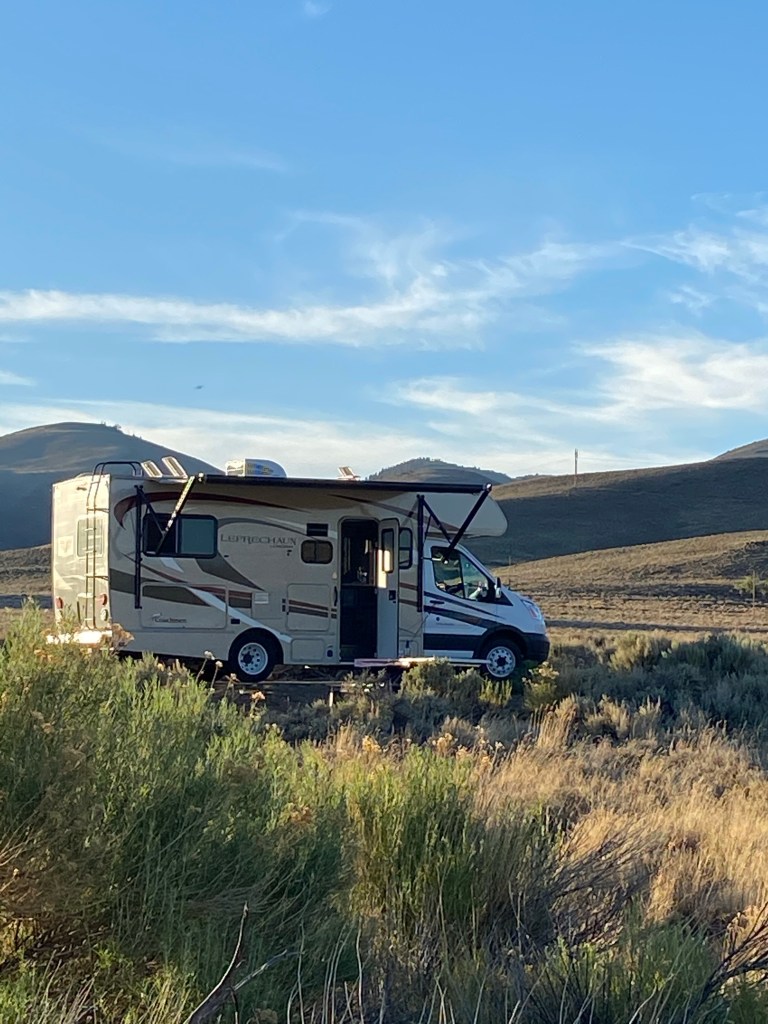
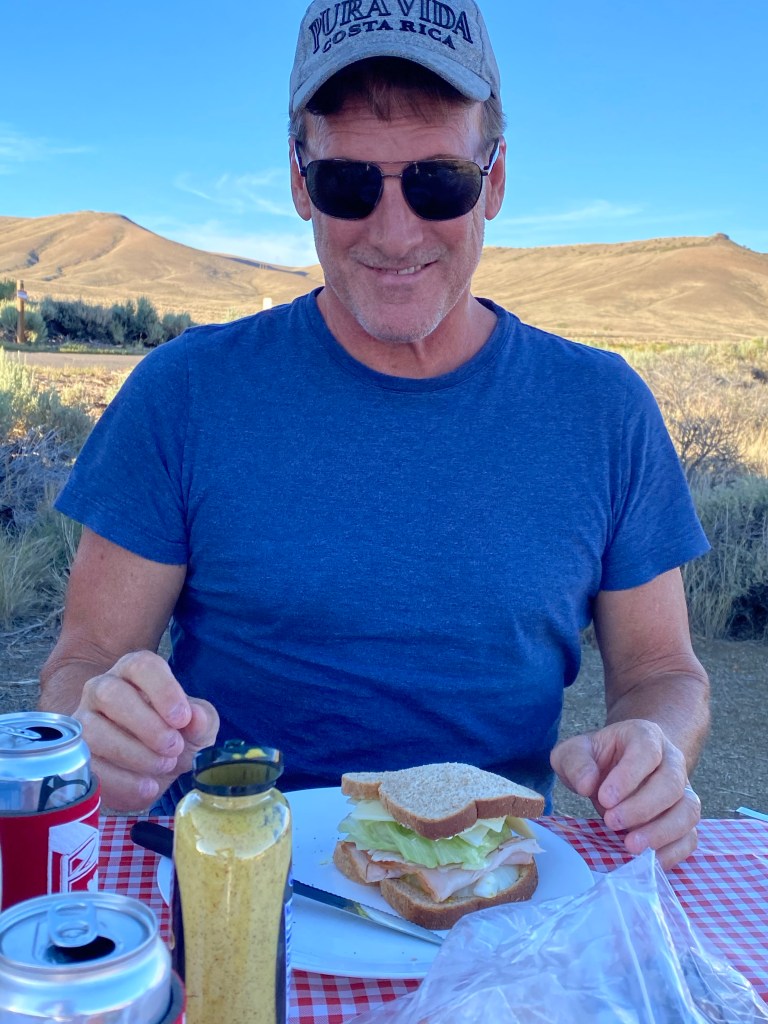

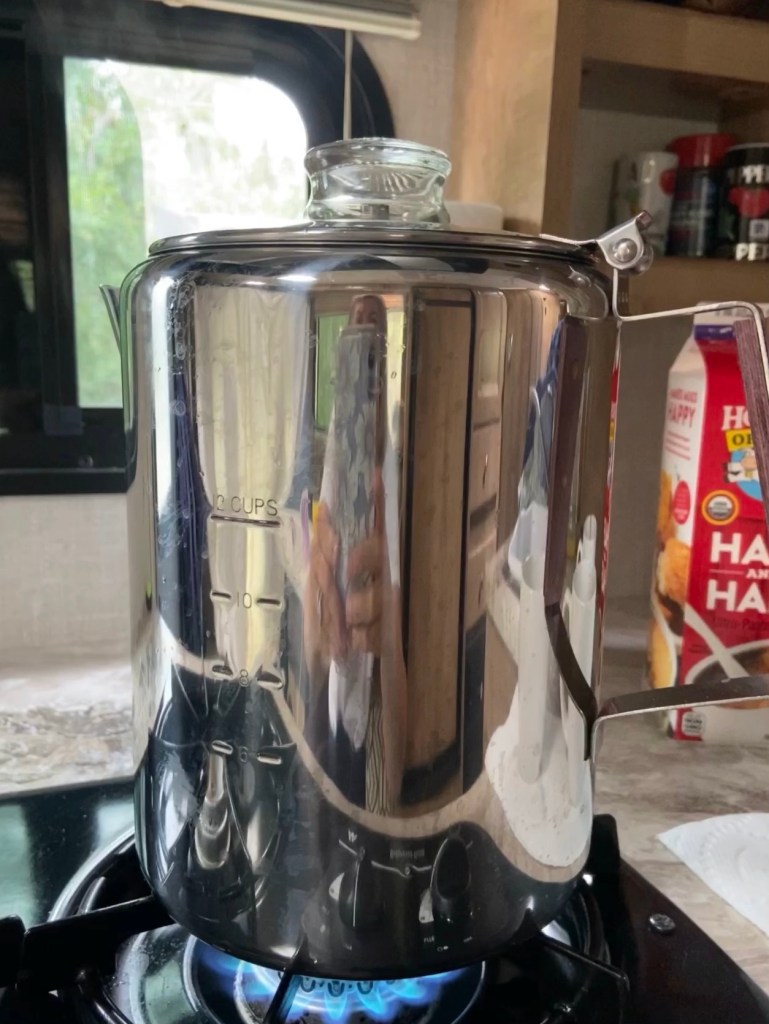
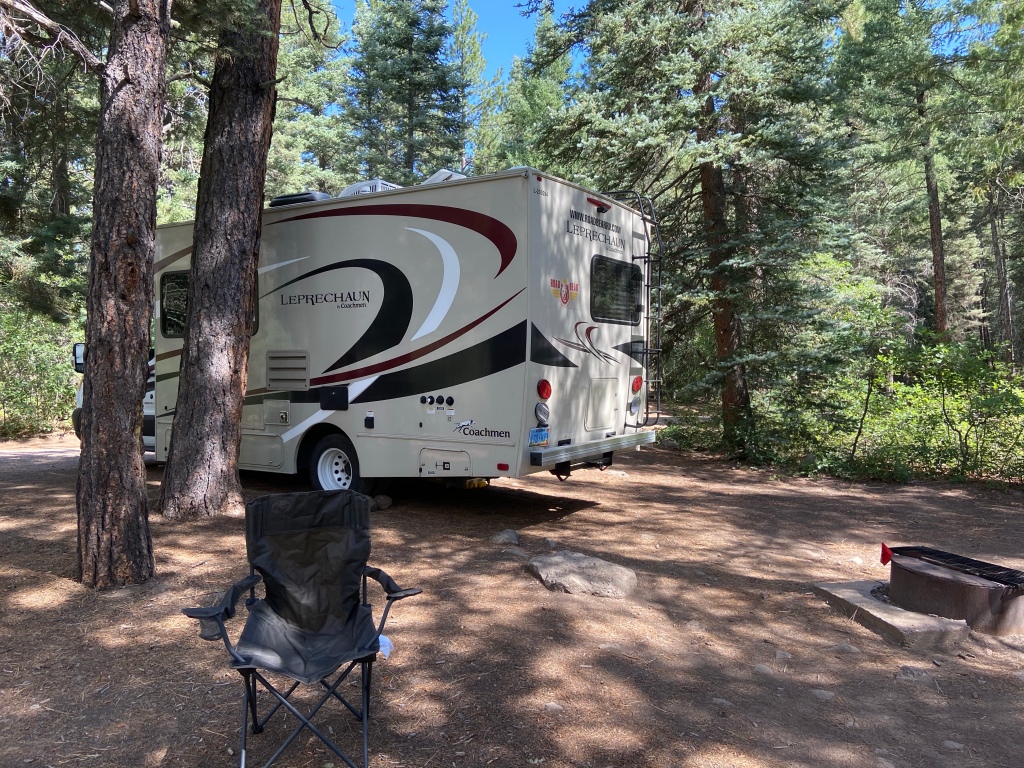


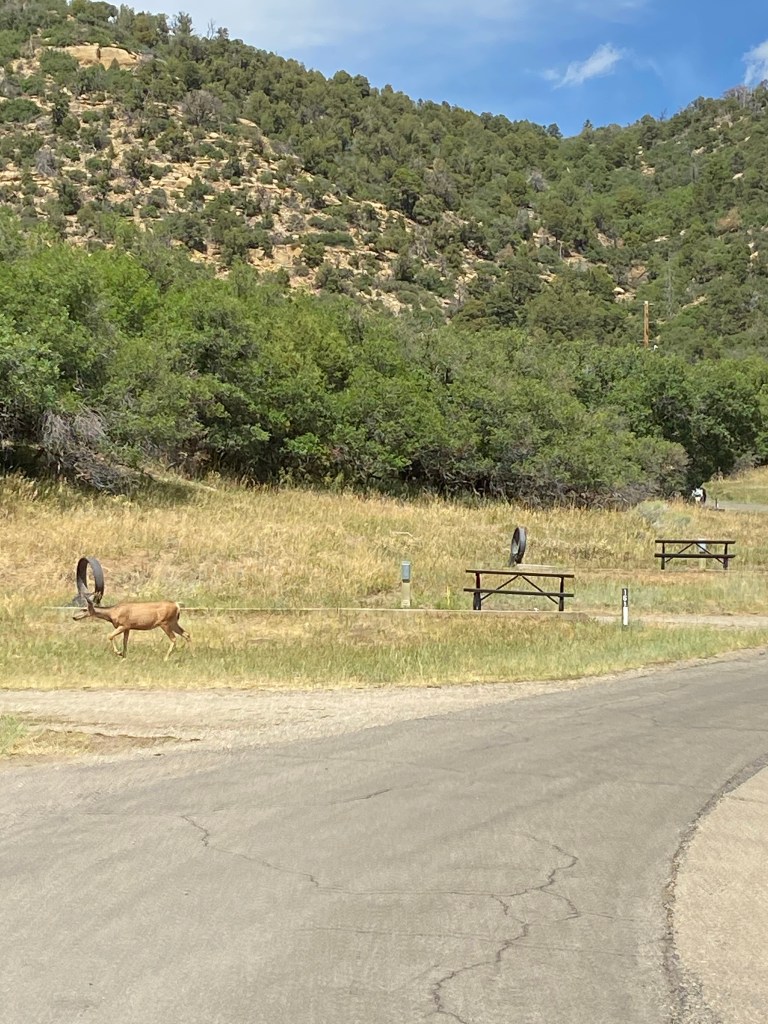
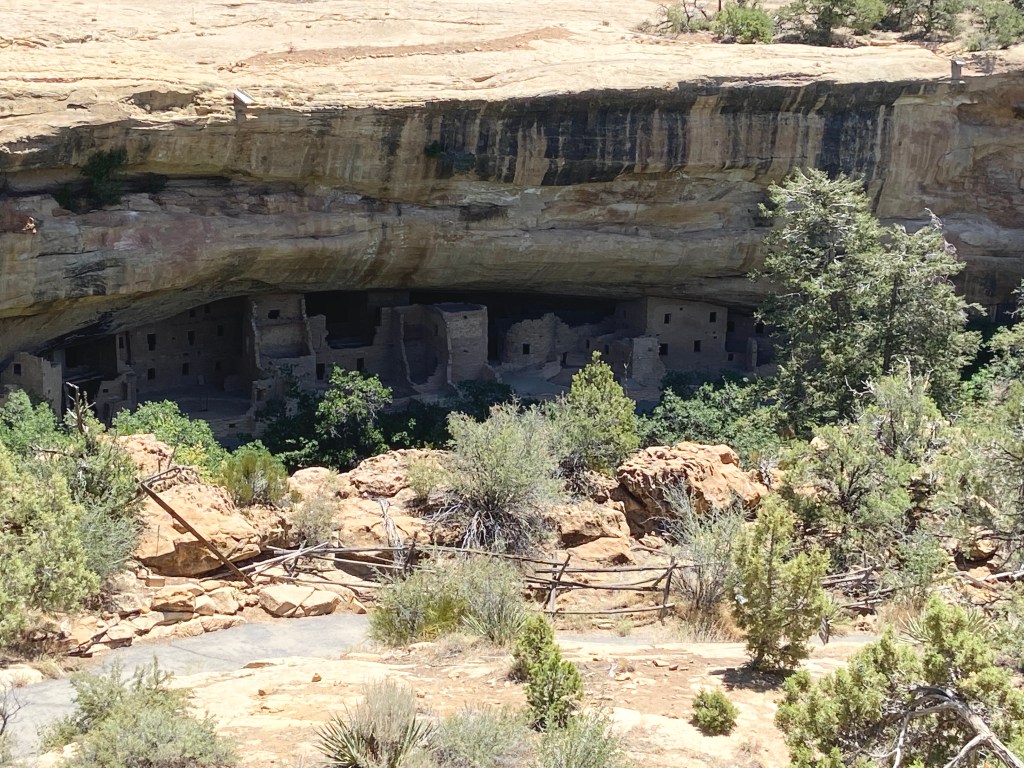

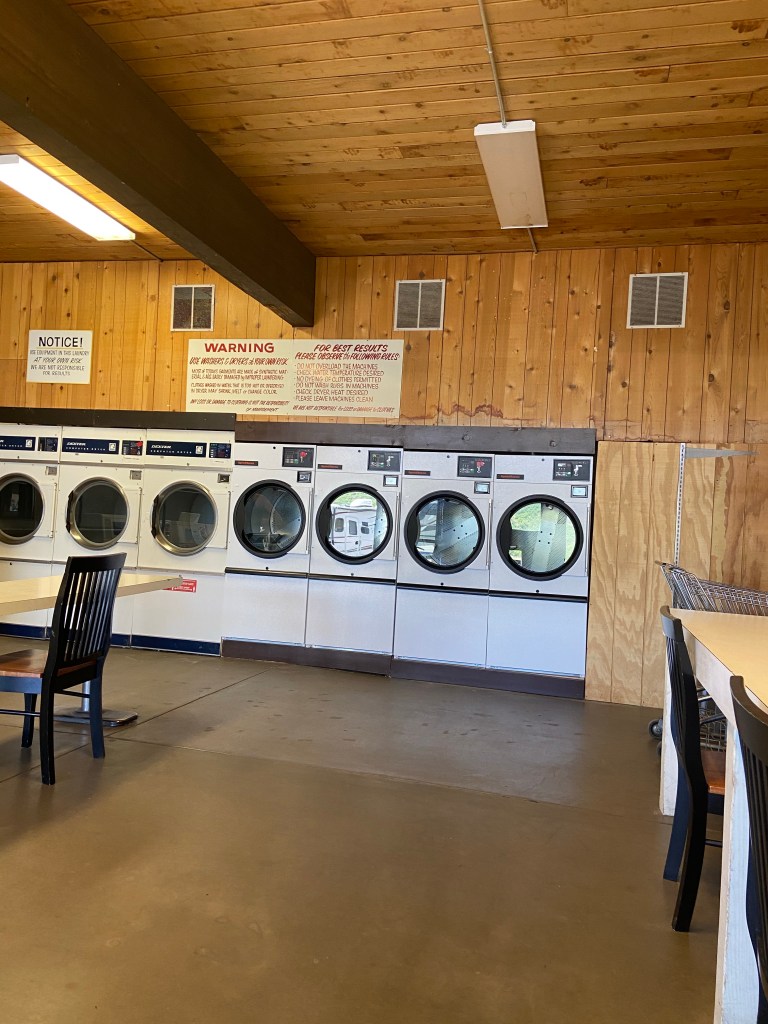
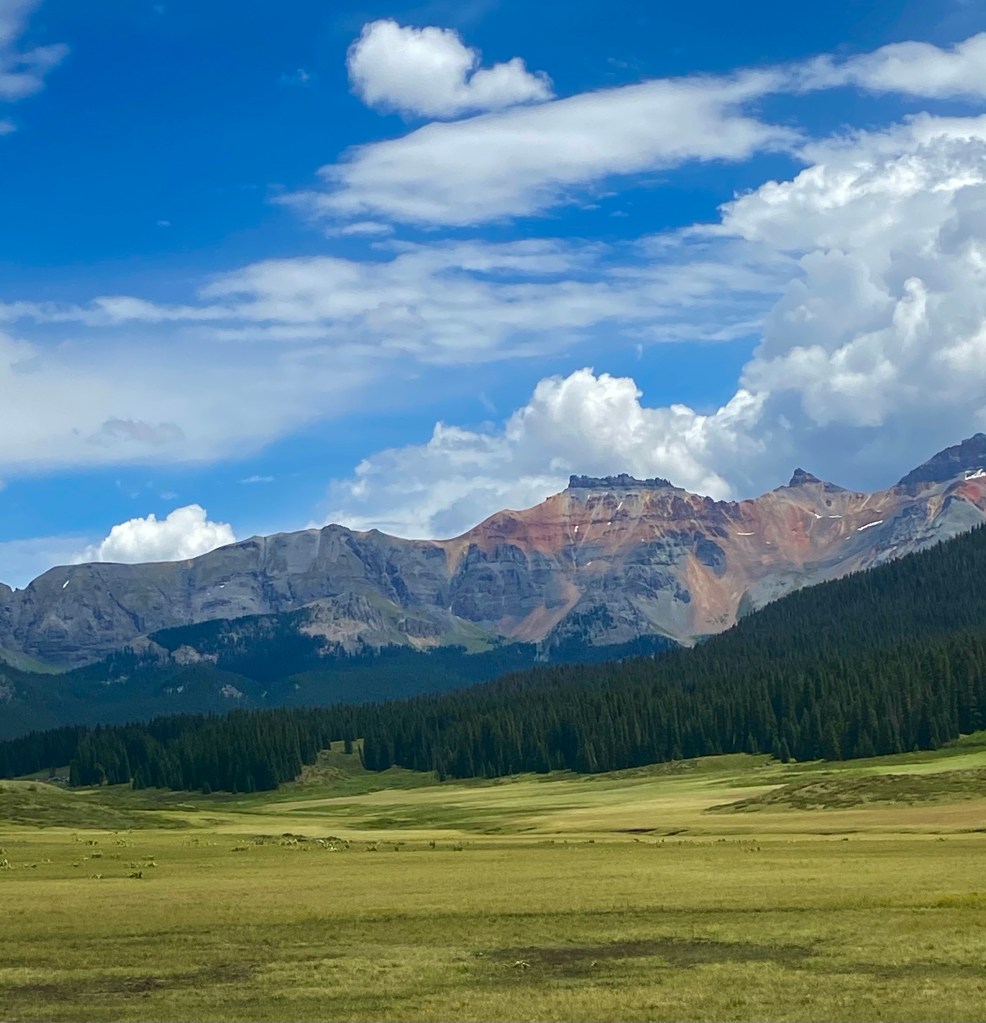
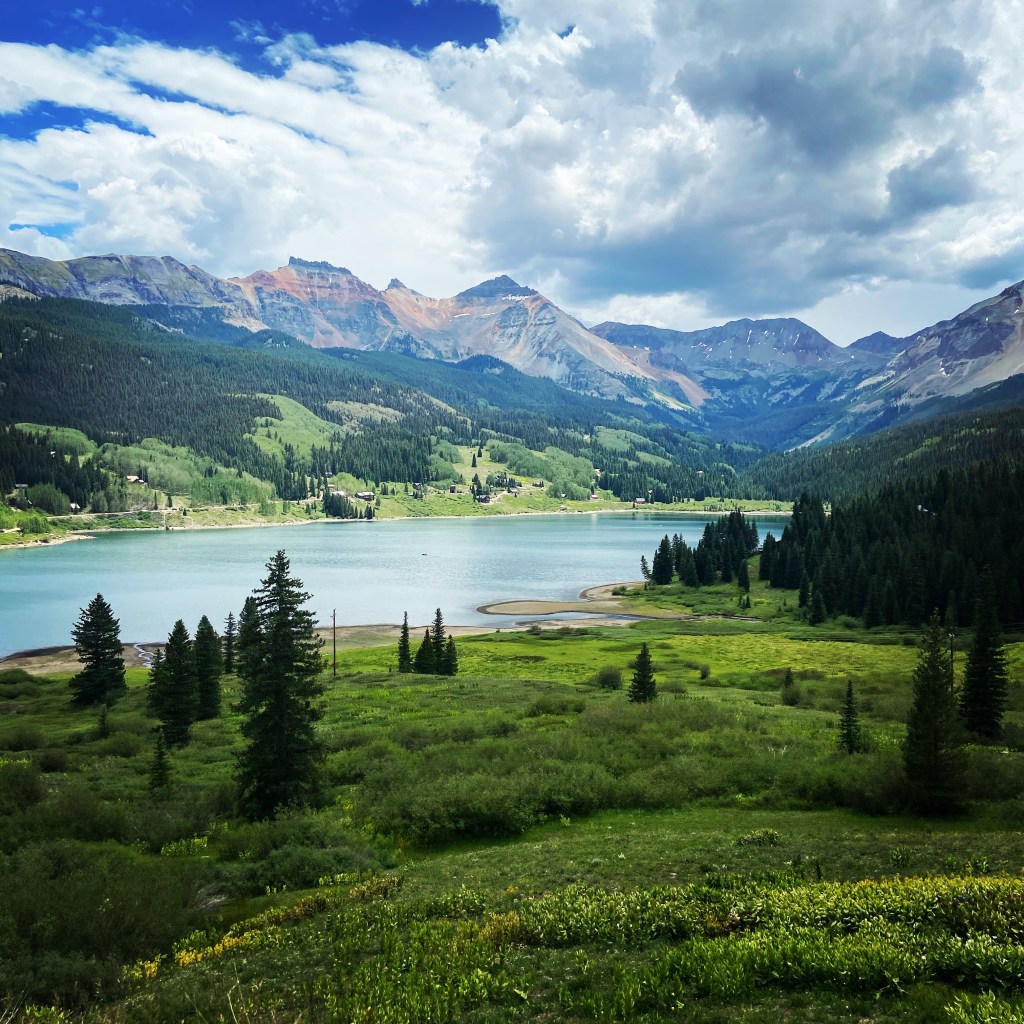

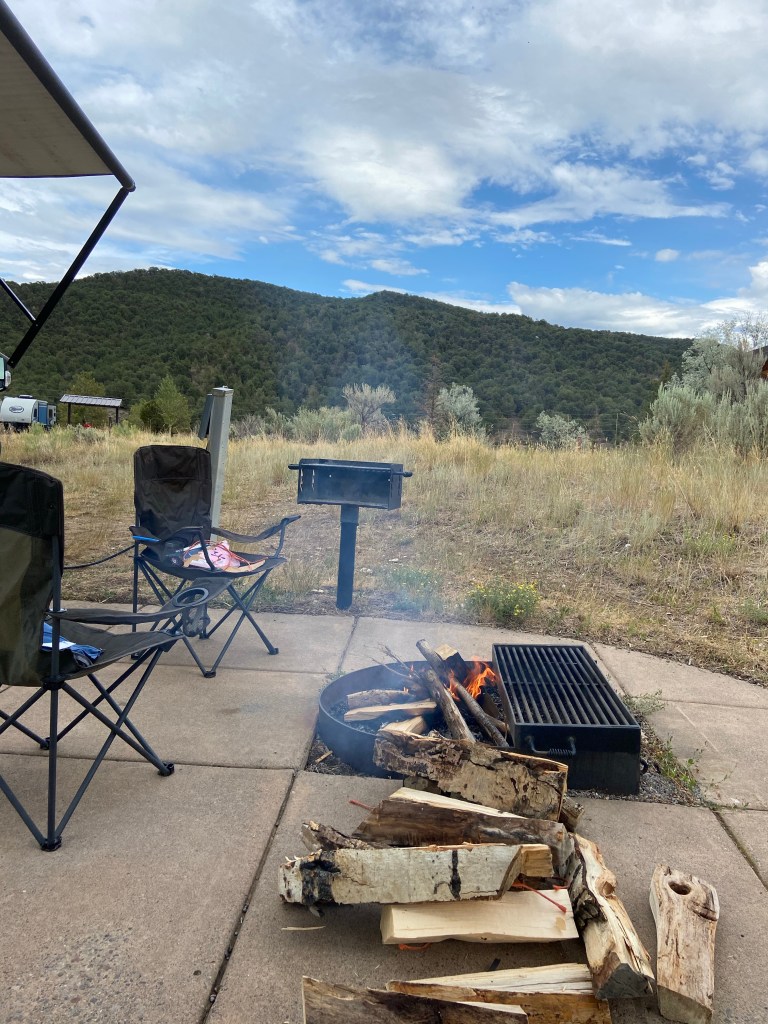
Trip 2 Itinerary:
Our second trip was a one-way journey from Florida to New York. We stopped at some nice campgrounds along the route, and with the larger RV, we were able to bring our inflatable kayak (we flew home from NY with our kayak in a suitcase). We stopped to visit friends and family from Atlanta to Long Island, and had an RV change in Virginia when our fridge stopped working.

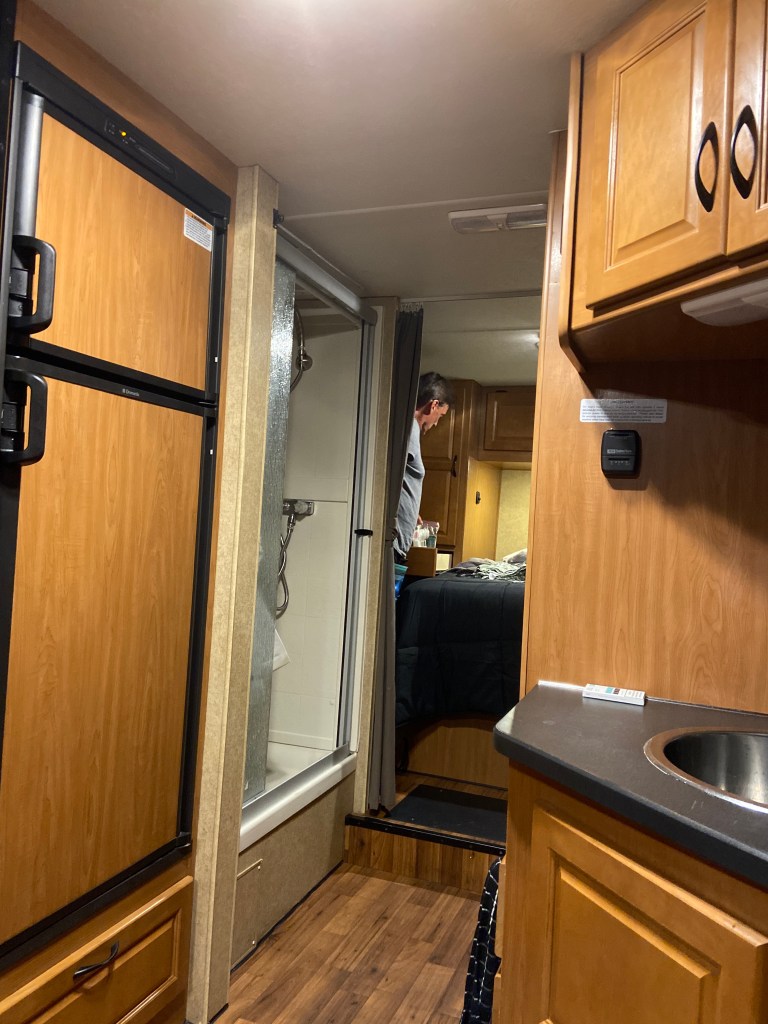

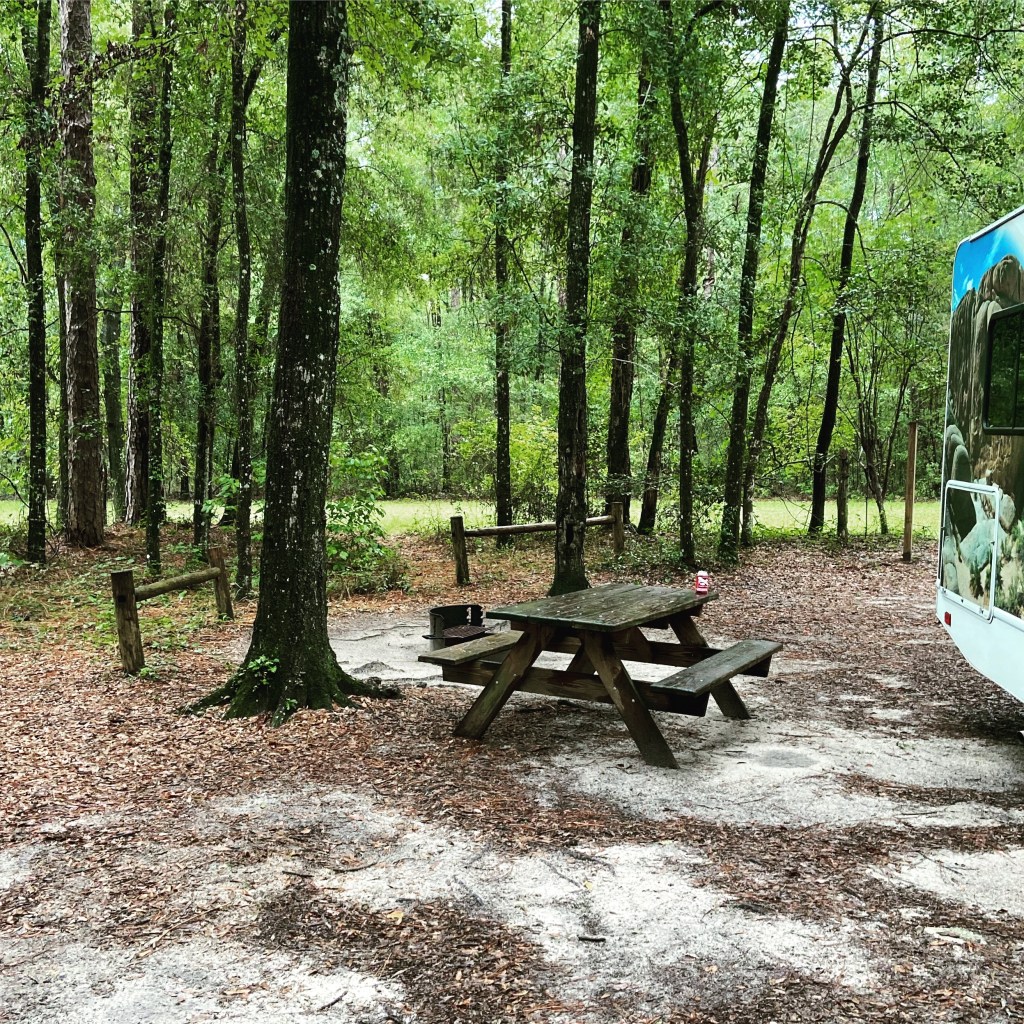
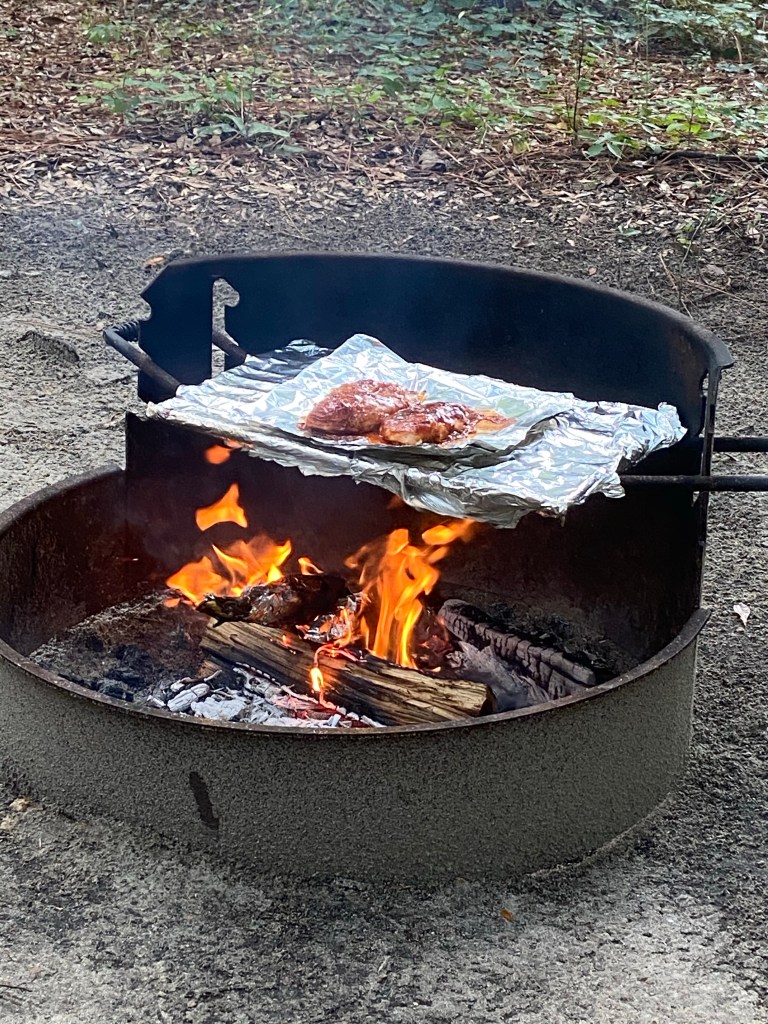
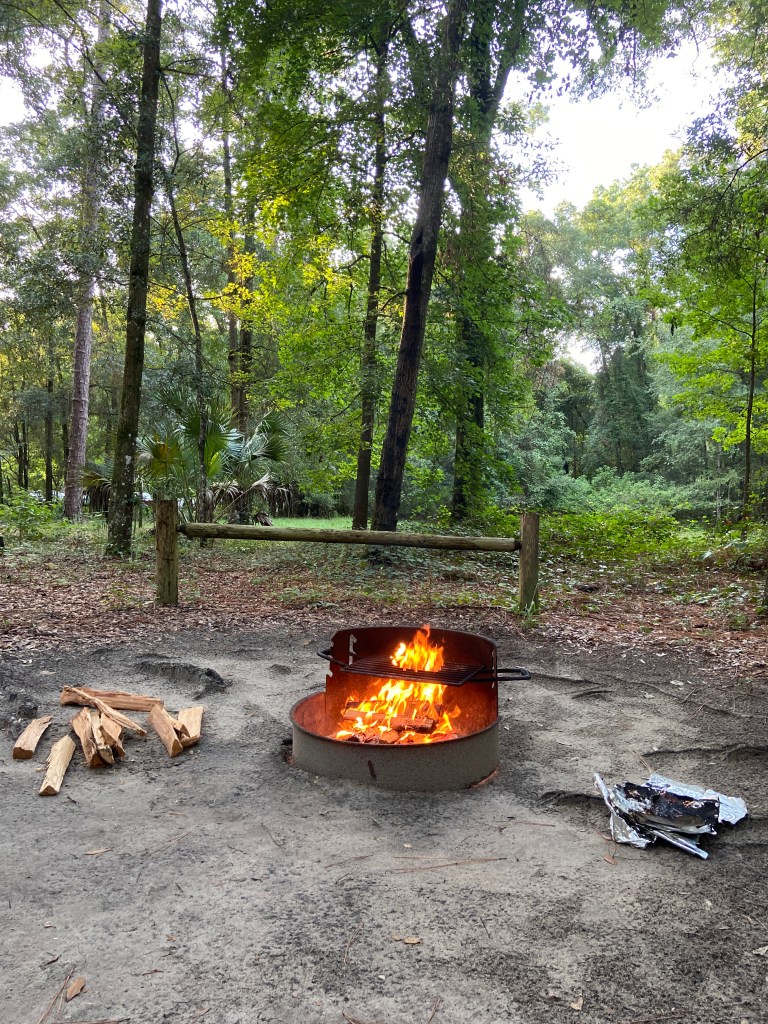
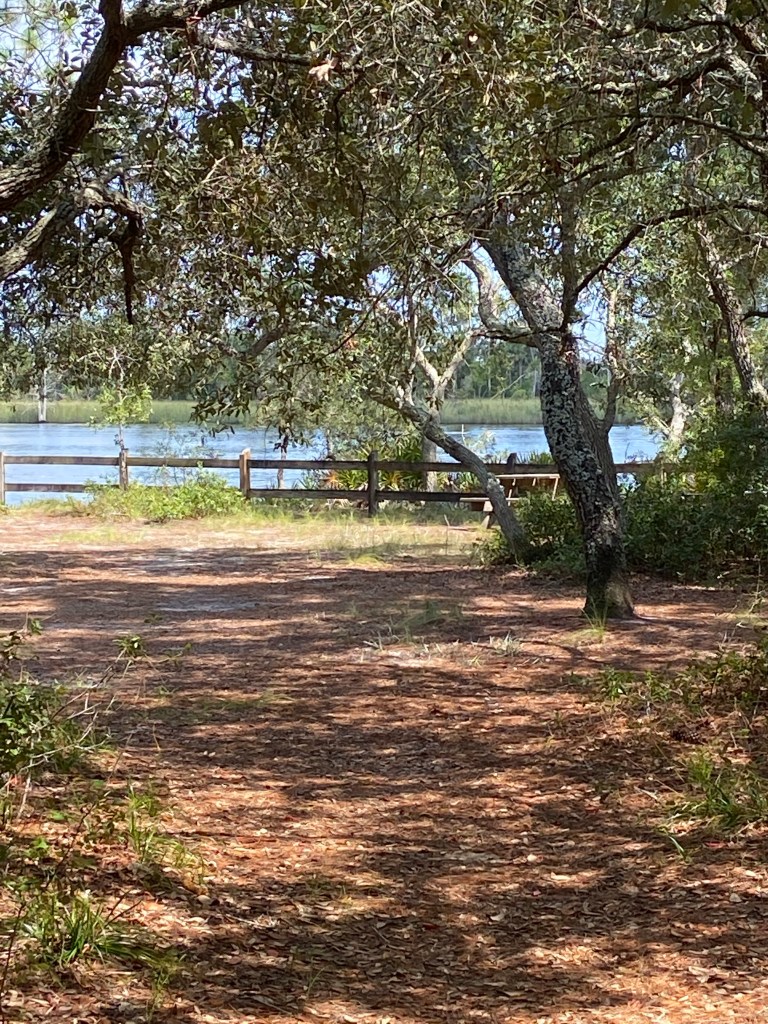

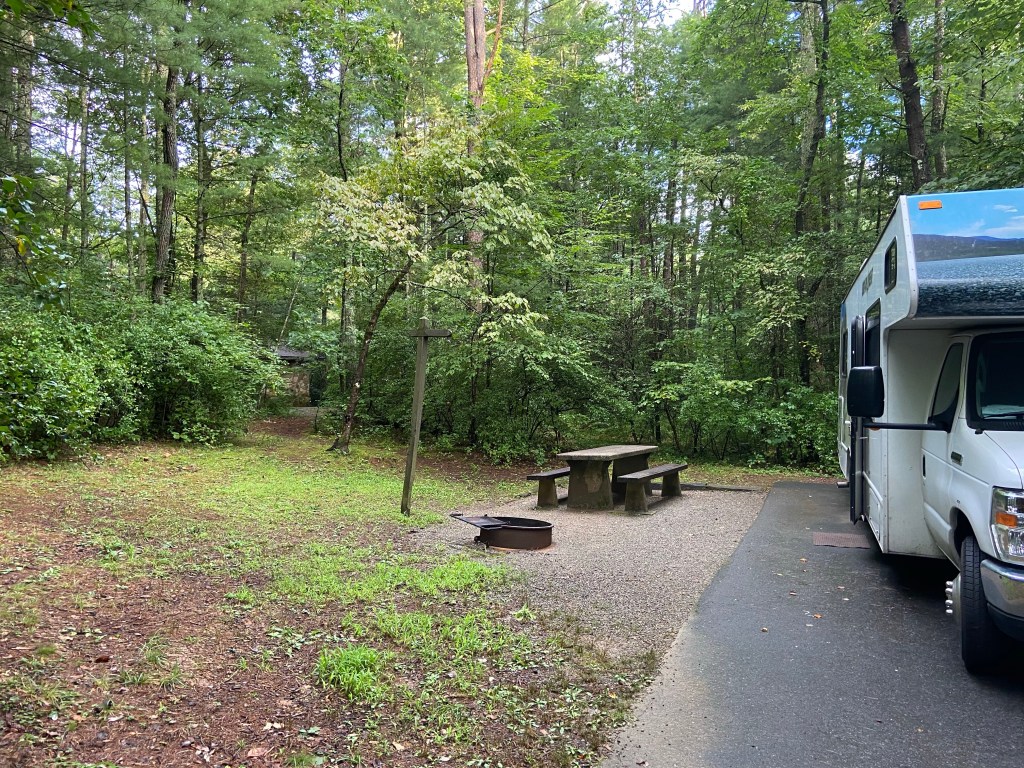
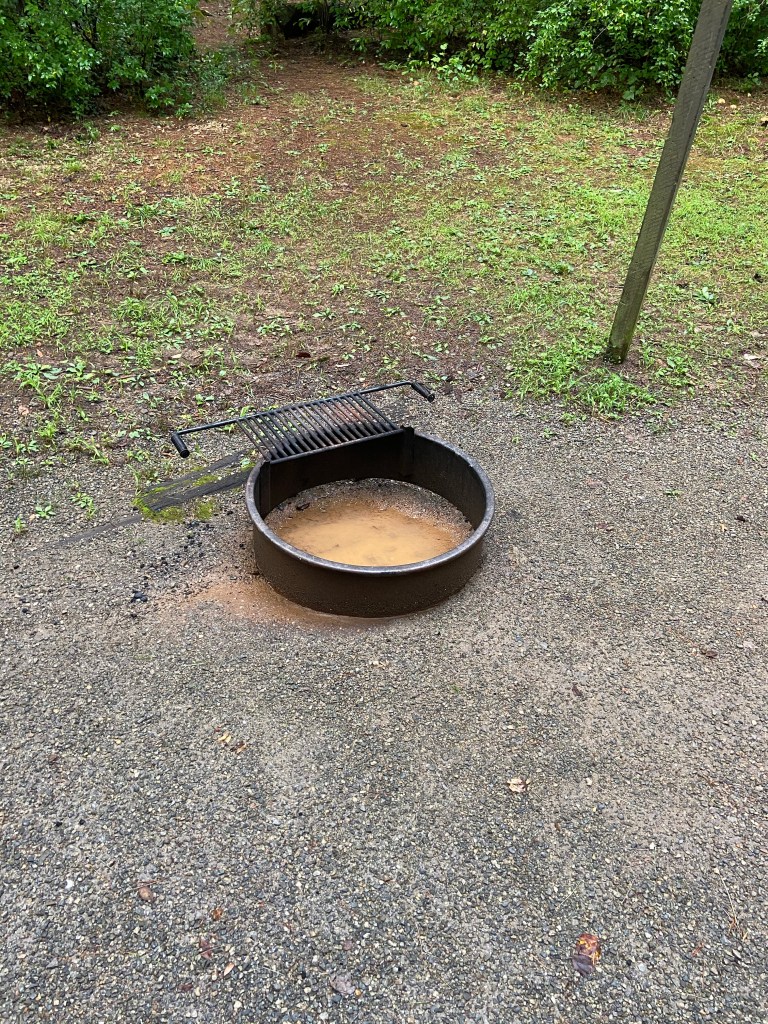



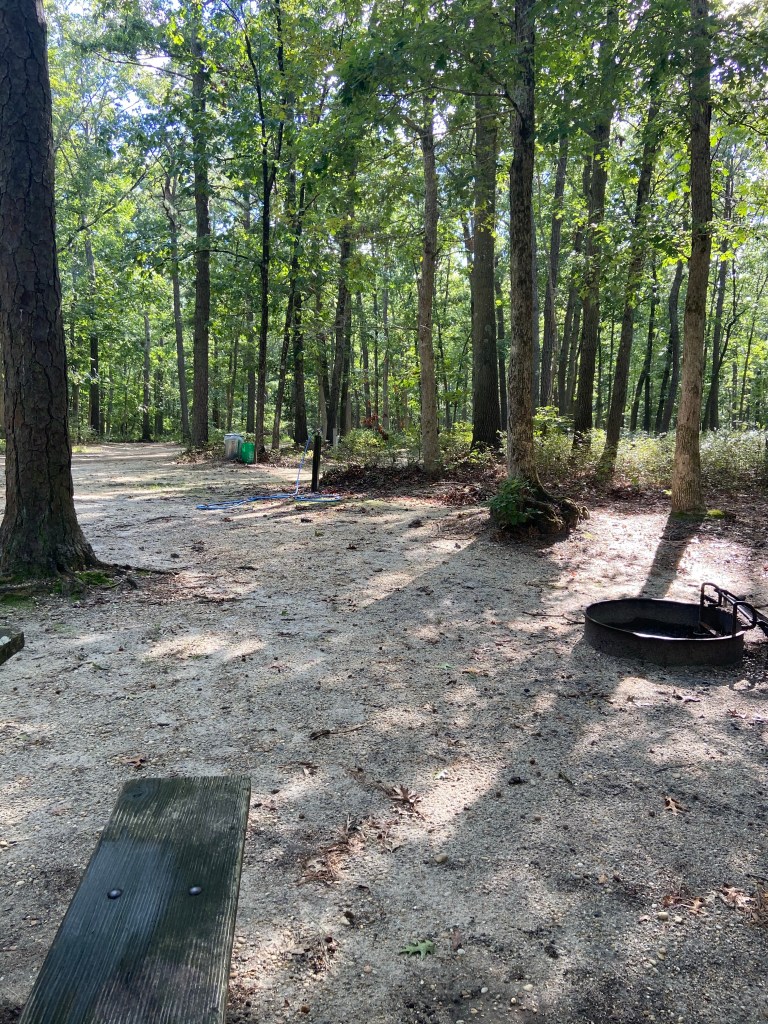

Trip #3 Itinerary:
This rental was close enough to home that we were able to load and unload from our house, which was ideal. The objective of this trip was to explore some of the amazing fresh water springs around Florida, so our campsites were chosen to be close to springs. We visited 8 springs, all of which I would easily recommend! We planned to kayak the Weeki Wachee river on our first stop, but the weather didn’t cooperate, so we returned to Mary’s Fish Camp at the end of the trip and we are so glad we did. We saw a ton of manatee on the river!
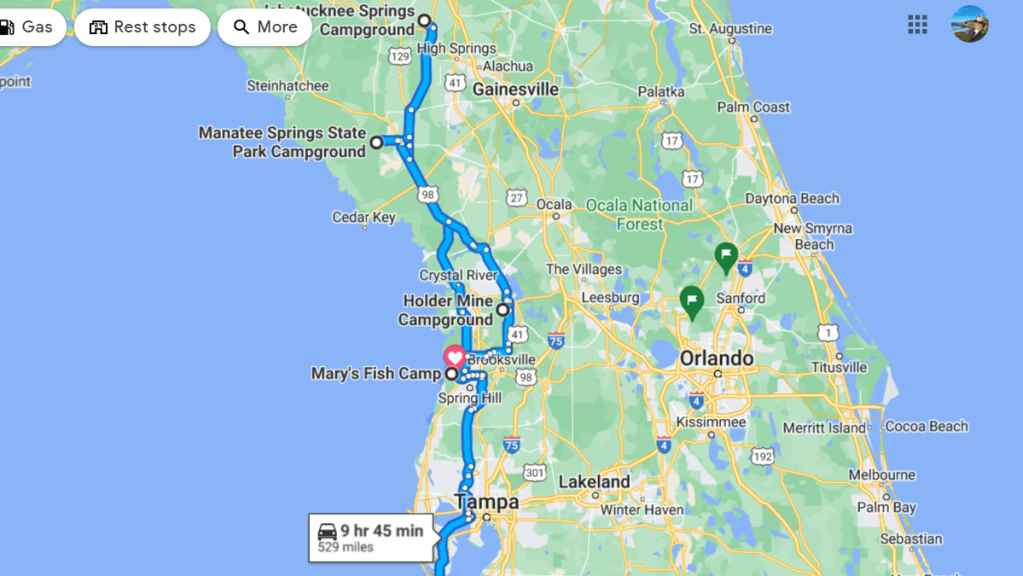






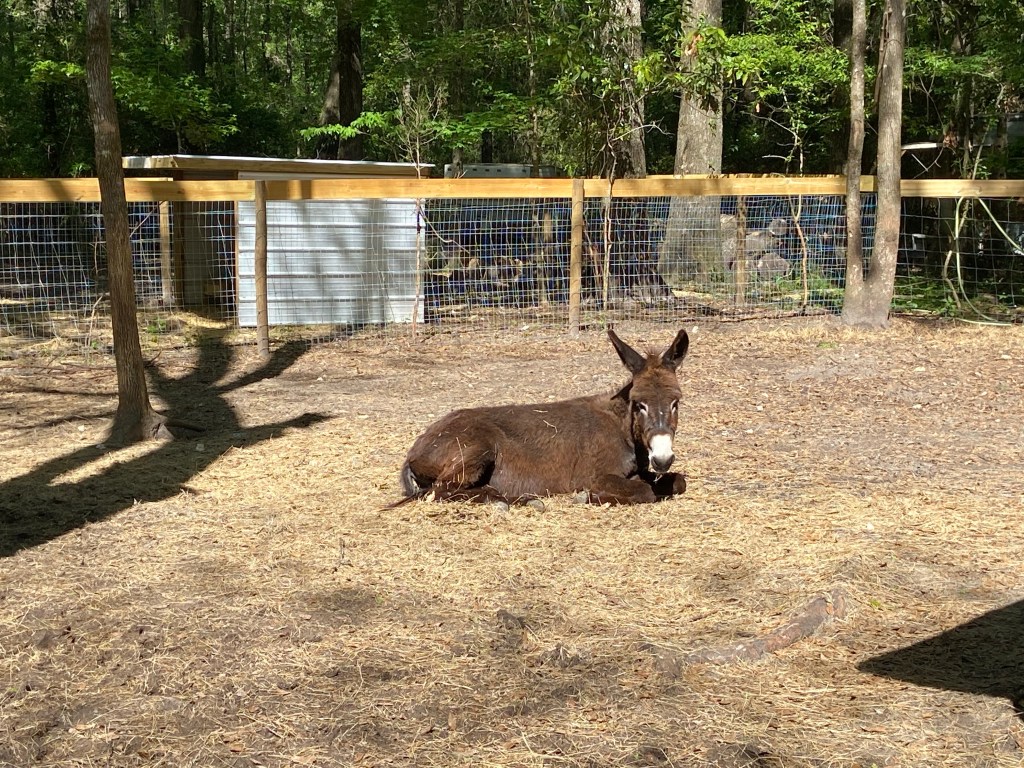

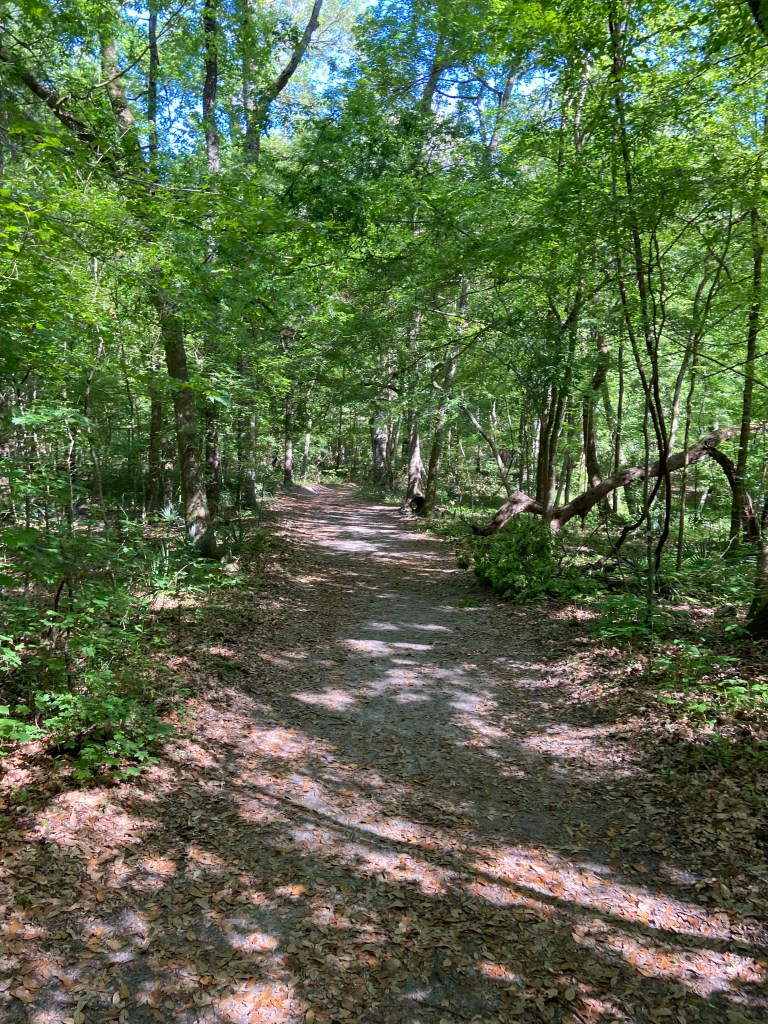

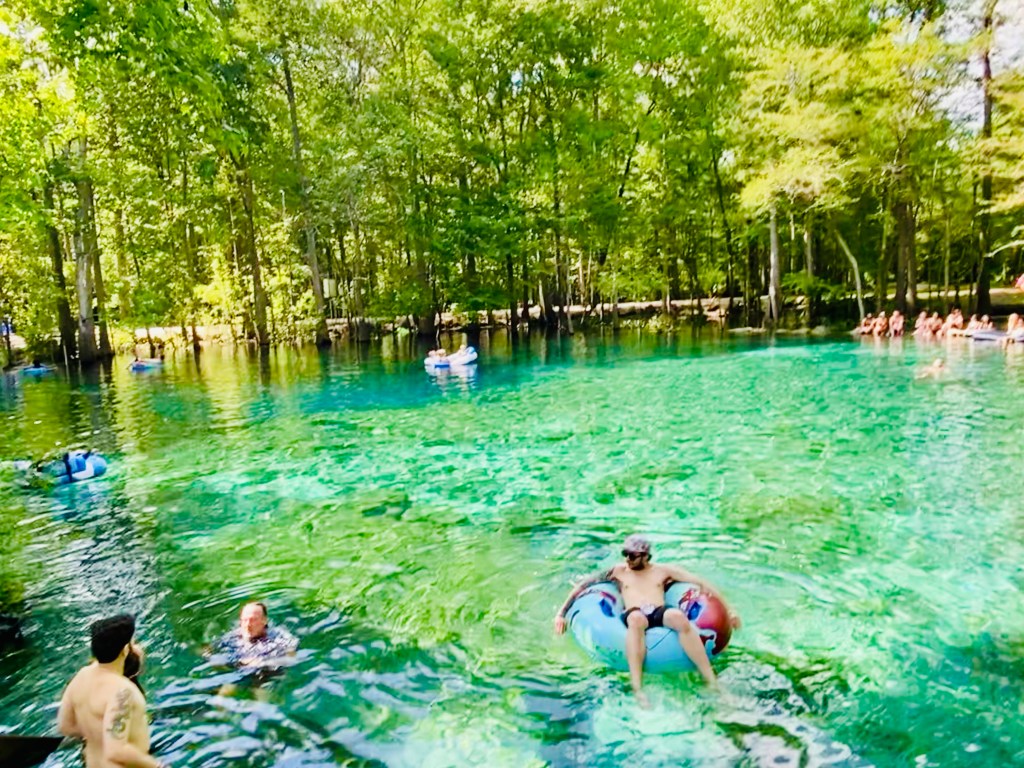
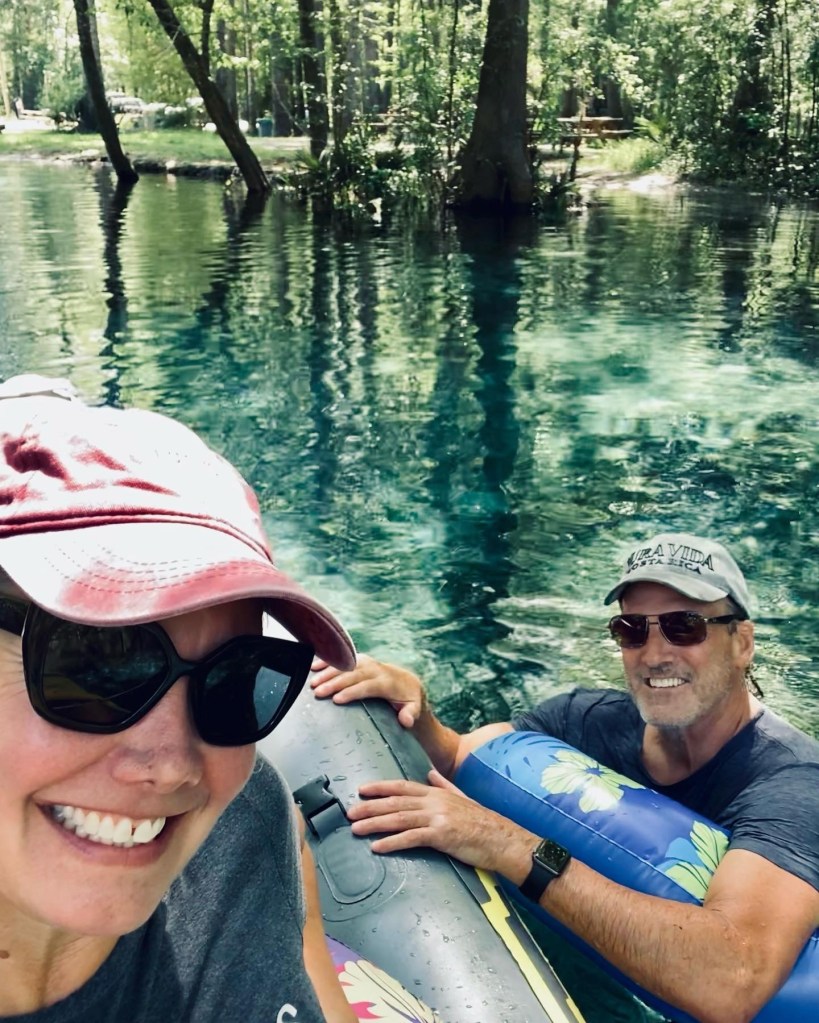
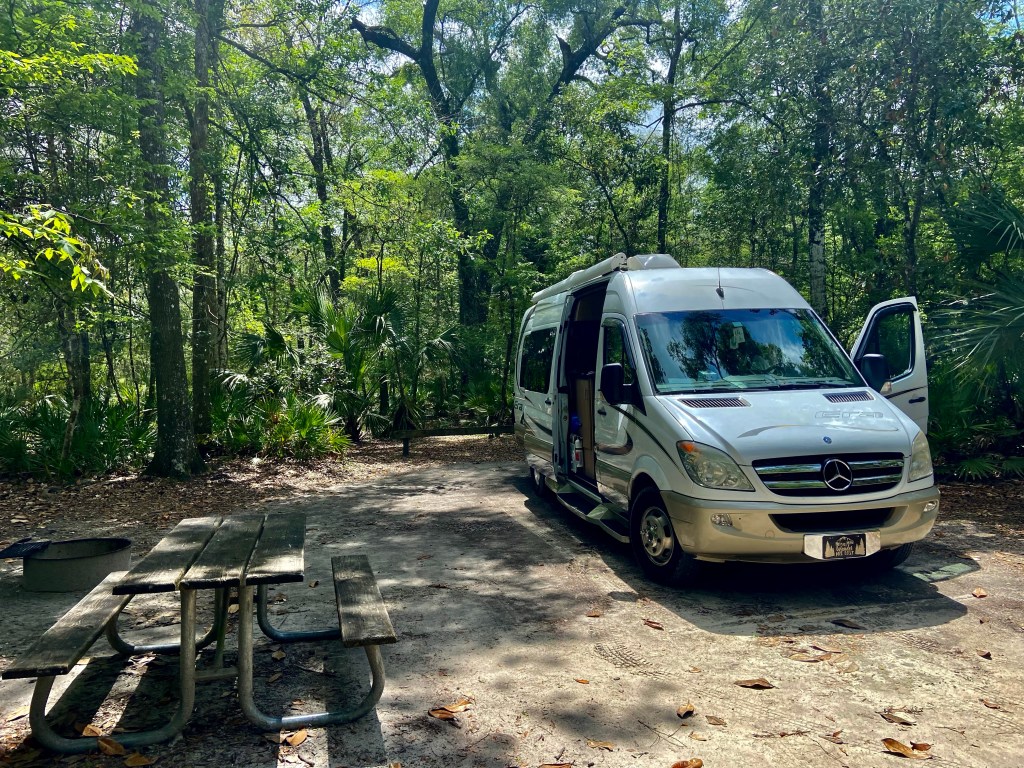

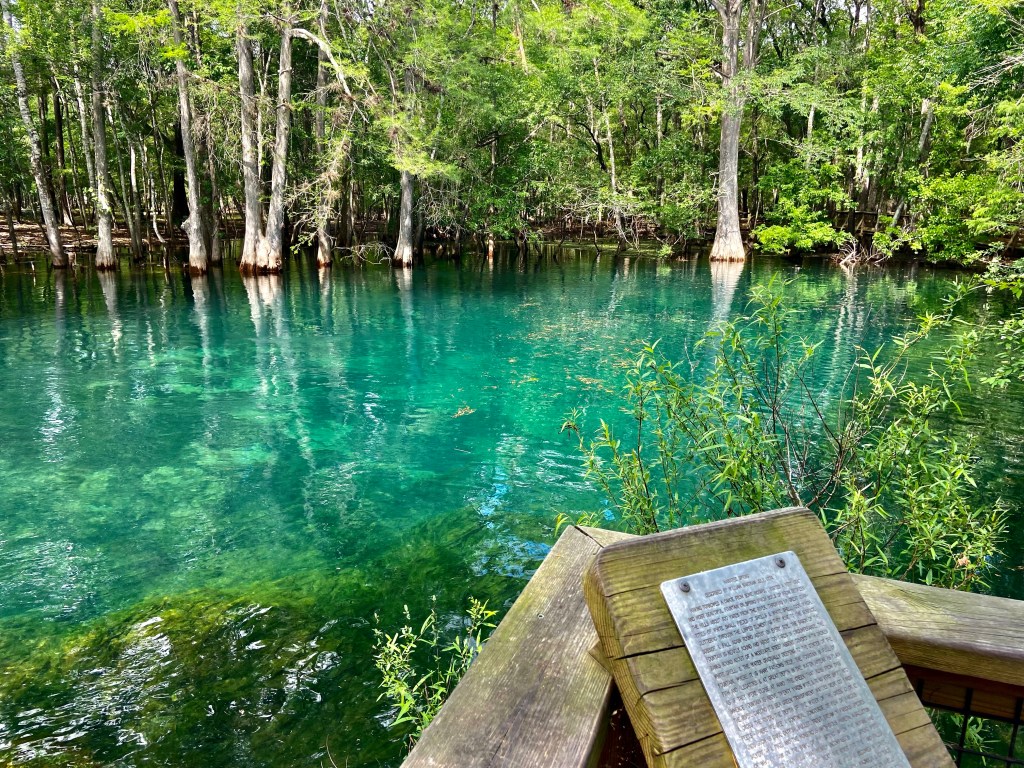

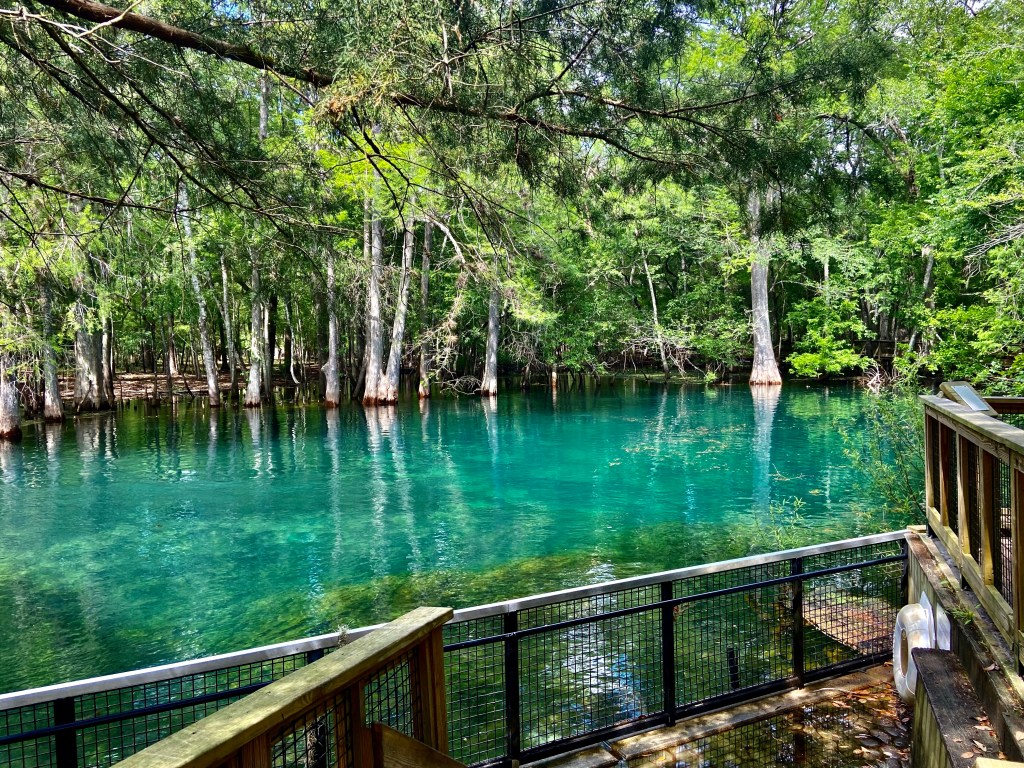

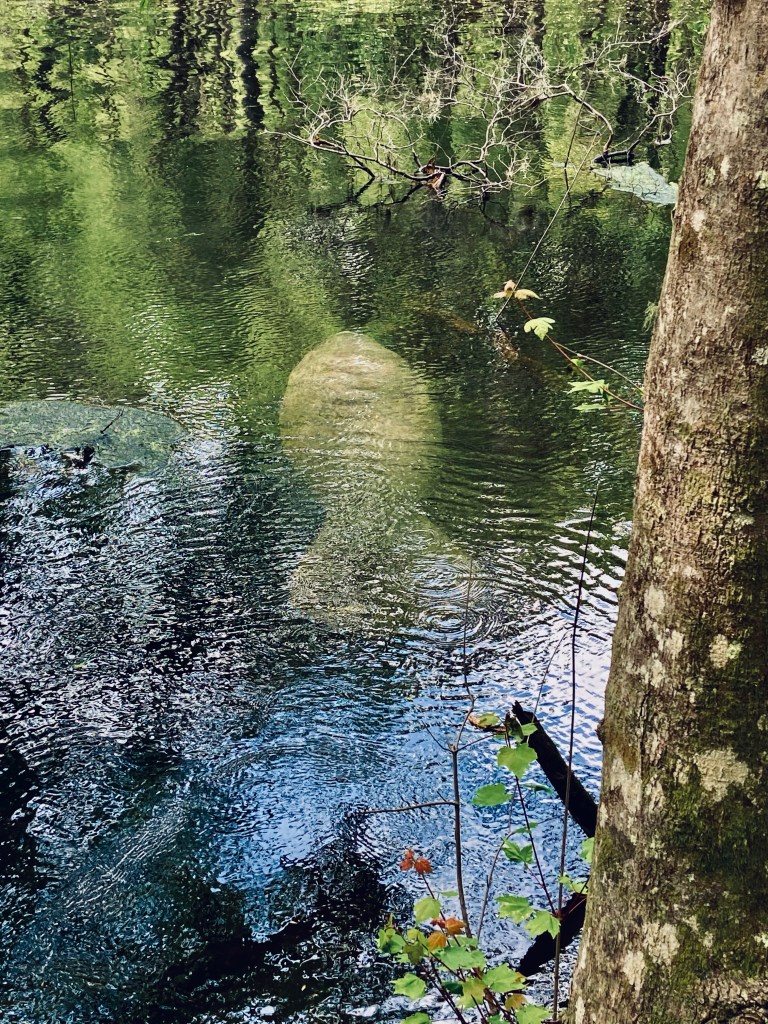
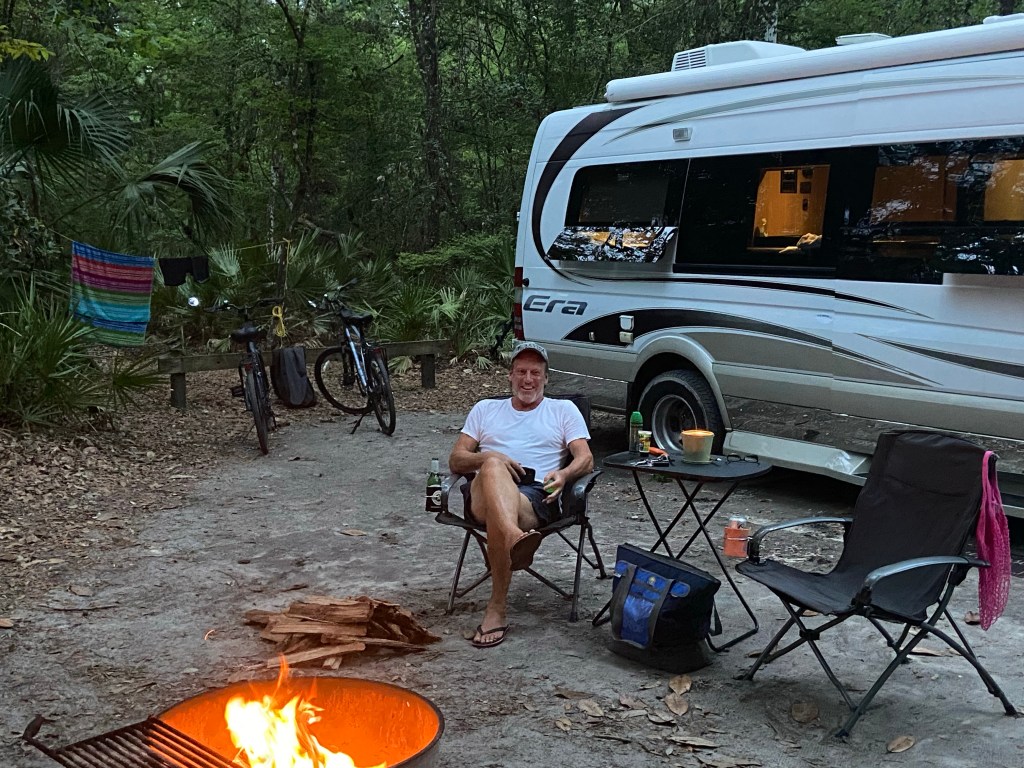
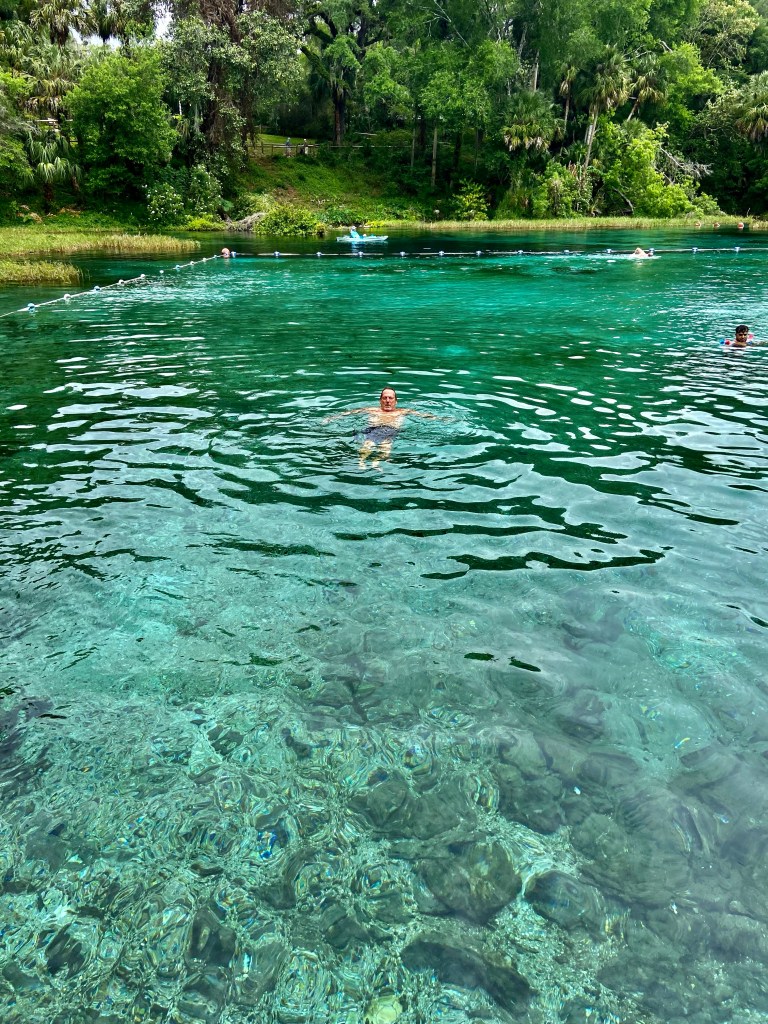
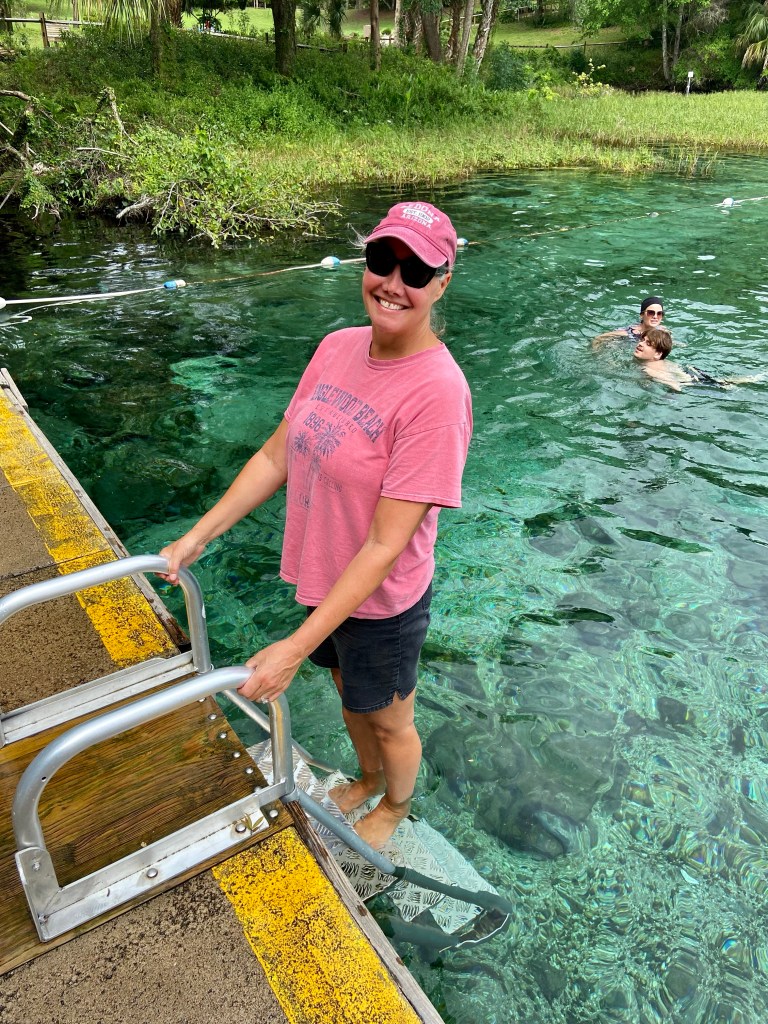
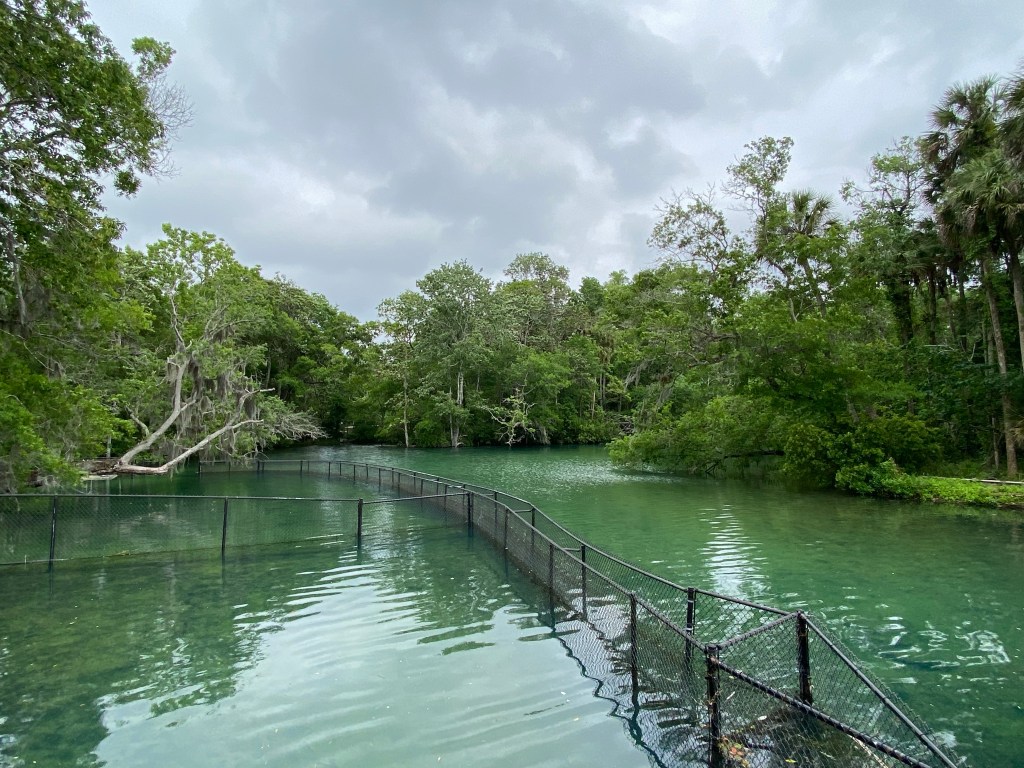
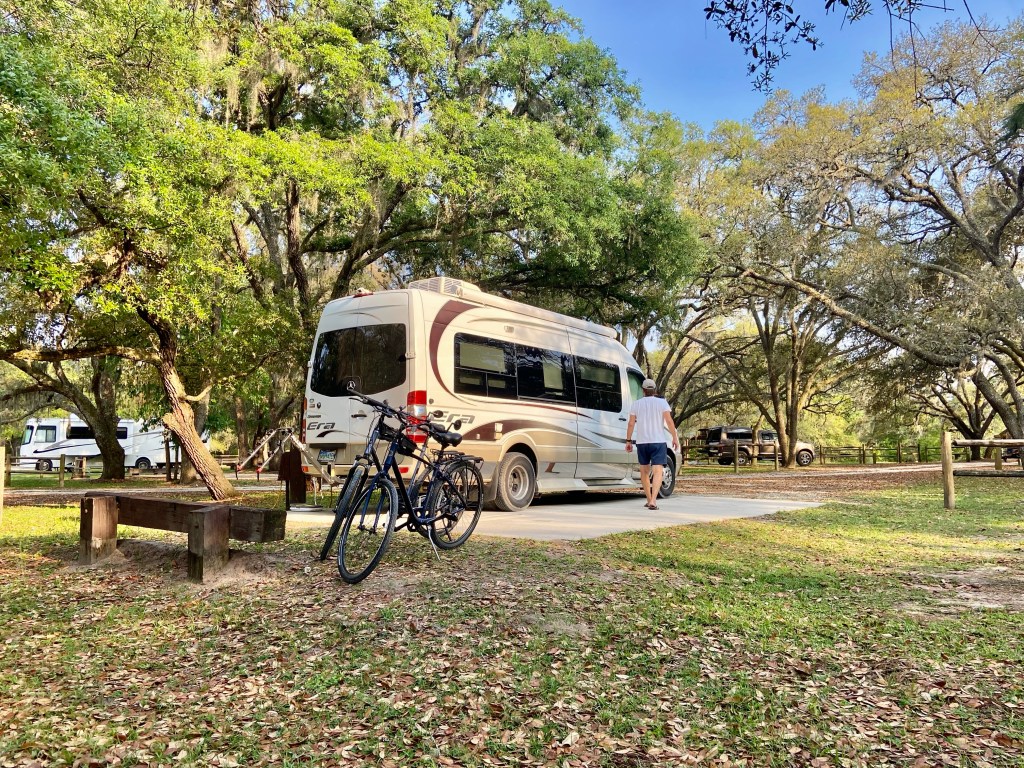
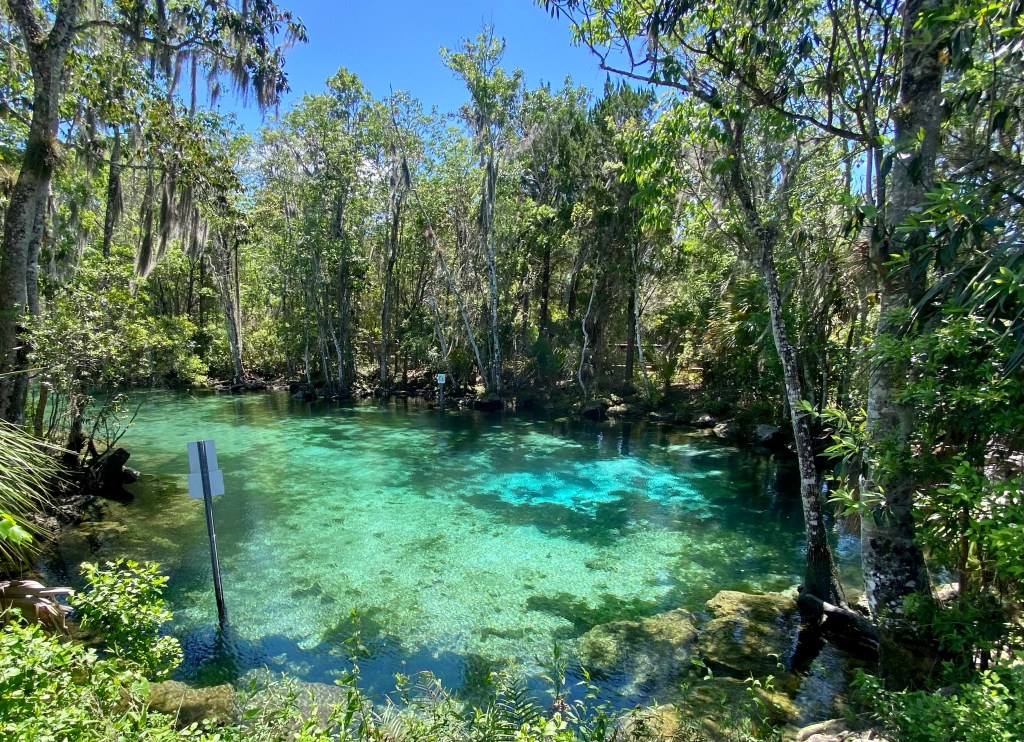
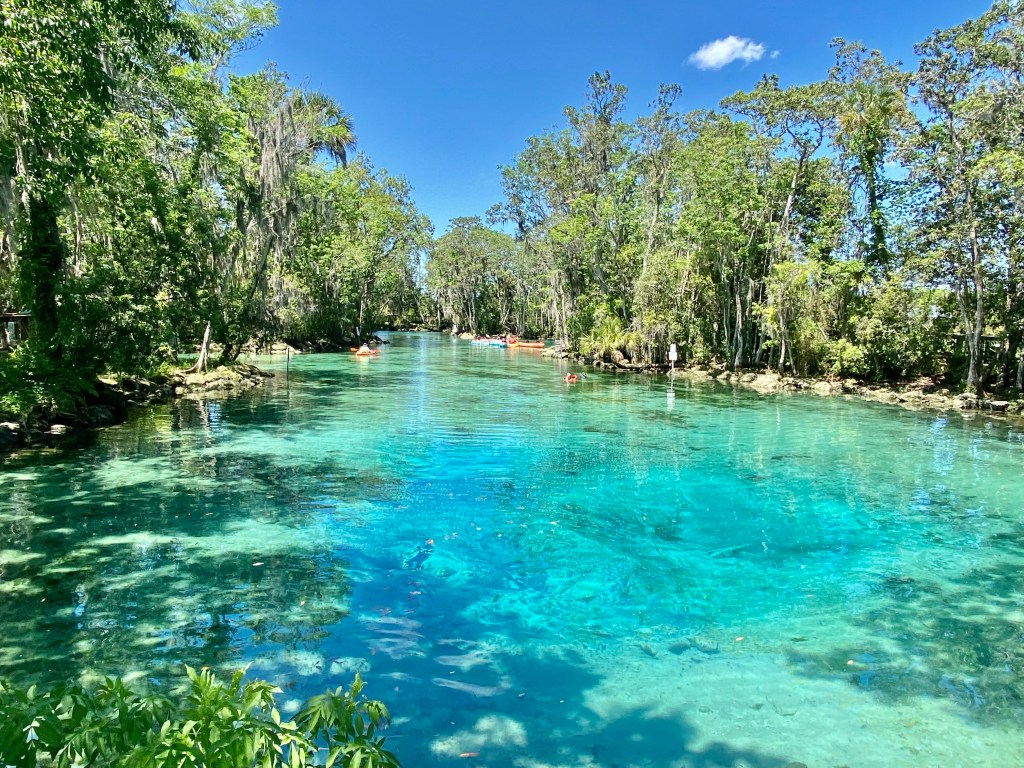
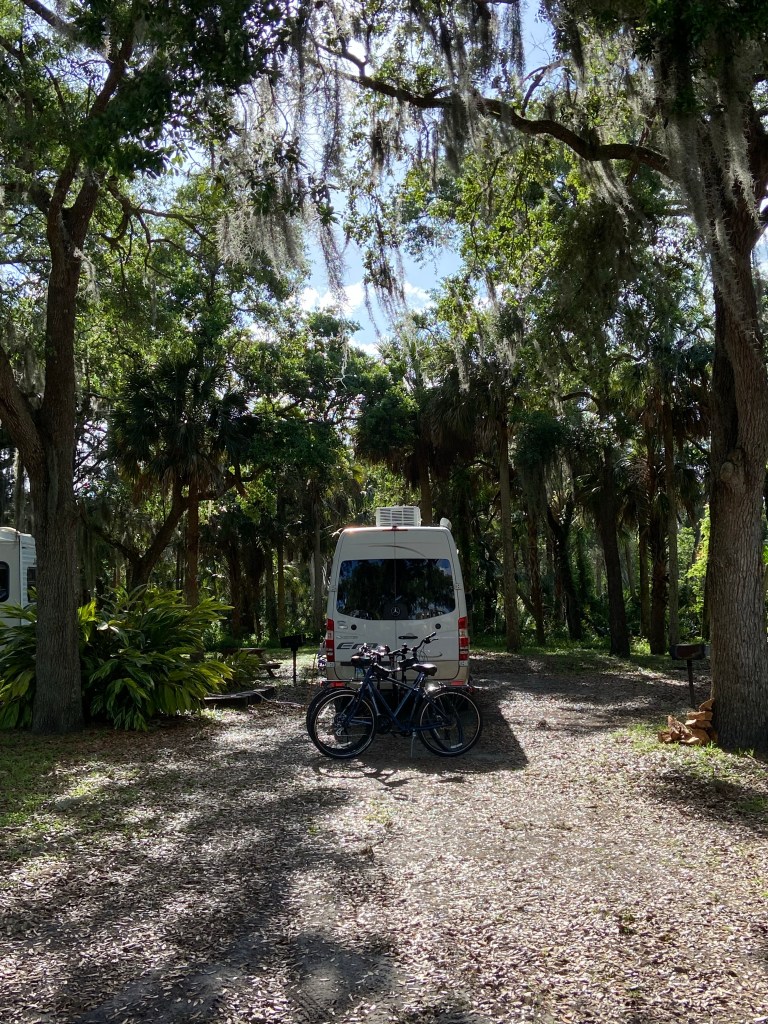
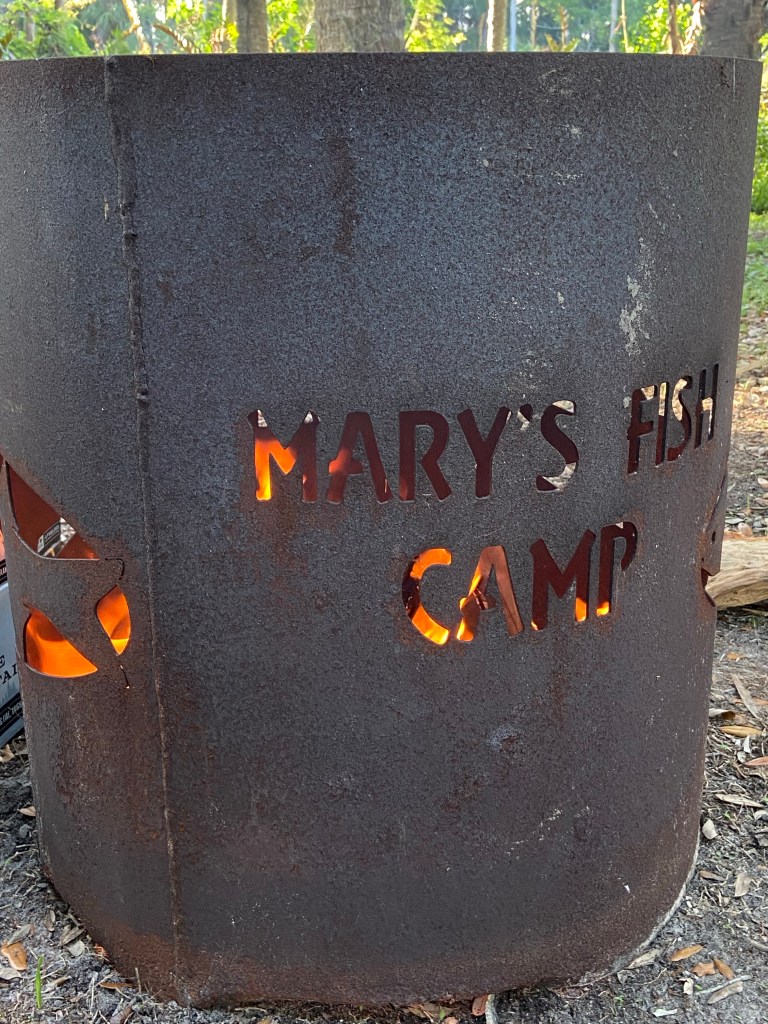


RV Lessons Learned:
- As mentioned above, research your campsite and MAKE RESERVATIONS!
- Don’t be shy about asking a lot of questions before you drive away, especially your first time. I was so focused on understanding the levels panel (which is so easy), that I didn’t pay much attention on how to operate the heat and water heater. Our first night of camping got quite cold and we didn’t know how to operate the LP heat in our camper. It took a few days before we realized that we could connect our RV to fresh, forced water at the water hook-up. We thought the water was there to fill our fresh water tank! The good news is that most RVs operate similarly, so once you’ve learned the ropes on one RV, it will be pretty much the same on the others.
- Dumping your tanks (black = toilet, grey = sinks) is a part of RV life you will have to live with, but fortunately, it’s not horrible if you do it correctly and you’re careful. Have disposable gloves, and always make sure your tank valves are closed before you remove the cap! We saw an experienced RV employee forget this step and got an unpleasant surprise when a previous customer forgot to empty his tank. Also, if your campground doesn’t have a dump site, you will want to locate the closest one. We found that some gas stations have dump stations.
- Your refrigerator is going to be very important so you need to understand how to make sure it’s working its best. Most RV refrigerators have three power sources (electric, LP, and battery) and you need to know when and how to use all three. Also, as mentioned previously, if your RV isn’t level, it could disrupt your refrigerator. We learned this lesson the hard way. During trip #2, one of our campsites wasn’t level and our fridge crapped out. Cruise America was unable to repair it and we had to swap RVs mid-trip.
- Do not assume you will be able to cook on your grill or firepit every night. We encountered a fire-ban during the first few days of trip #1 and I realized all the meals I planned involved cooking on a fire. Cooking in the RV is fine for small meals, but I eventually got tired of preparing meals in a small space, and cleaning lots of dishes. Be prepared to eat sandwiches a few nights.
- Washing dishes in a bucket is messy and a nuisance. We quickly learned the value of biodegradable disposable plates and cooking in disposable foil pans.
- Keeping dirt and dust out of the camper was crucial. We went to the dollar store and bought a couple outdoor and indoor mats to keep dirt at bay. Shoes were banned from the camper, and you quickly learn how to minimize your trips in and out of the vehicle (which also helps keeps bugs out).
- You might have a shower in your RV but it’s so small it might not be worth the trouble of draining your fresh water tank and filling your grey water tank. Most good campgrounds have bathing facilities; be sure to bring shower shoes or flip flops. We were surprised at how quickly the black and grey tanks fill up. If you are connected to a sewer hookup, it’s not an issue.
- Level indicators don’t always work! If you’ve been flushing your toilet for days and your black water is still only at ½ full, you might have a faulty indicator or sensor. If your black water tank gets overly full, the black water (sewage) will back up in to your toilet which isn’t fun.
- If you don’t know how to do something or where something is, ask your fellow campers. We found that most were a lot more experienced than us, some even lived in their camper part or full time.
I hope this information helps you have a fun and enjoyable RV trip, and as always, I welcome your feedback in the comments section!



You guys are the best, thanks for sharing
LikeLiked by 1 person
Thank you for mentioning that while it’s not quite “camping,” there are parking lots that allow overnight RV parking if you need a place to stay for the night. My sister has stated that she wants to take an RV trip. I’ll advise her to contact the RV resort.
LikeLiked by 1 person
Let me know if I can offer any additional advice!
LikeLike